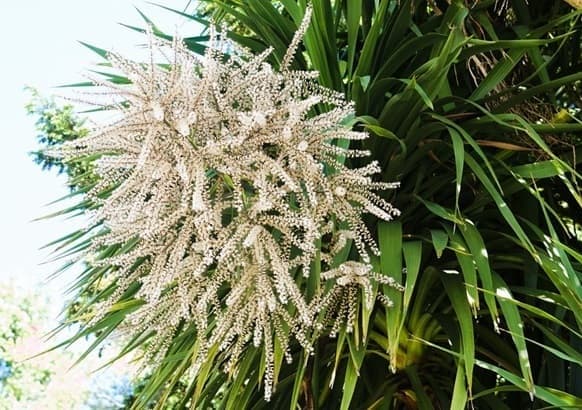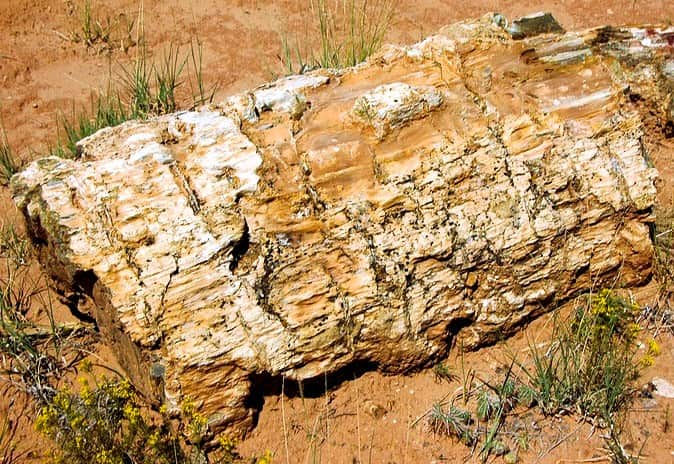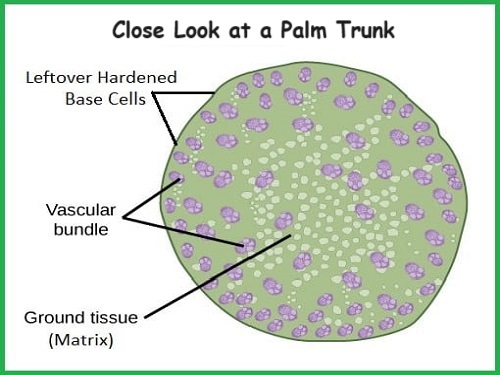Life Amid the Palms

January 2024
Welcome!

The Origin of Palm Trees
We're journeying back in time, far beyond the realms of written history. Imagine the earth then! It was a very different place, ruled by fearsome dinosaurs.
Some movies give you clues! 🤔 Have you seen the Jurassic Park series?

What if we told you there are inhabitants of that Cretaceous era with us today - standing tall & proud? Would you be surprised that we're talking about the origin of palm trees? Likely not 😉!
Scientific research had found that palm trees have been around for more than 80 million years. They're among the oldest plant families on Earth.
Palm Fossil Accidental Discovery
While hunting in 1970, a Utah (U.S. State) man found a strange, 4-foot long, rock-like log. His hobby interest in geology told him it was different enough to tell a paleobotanist.
That was William Tidwell from BYU. Who took samples, viewing them with a microscope. He was amazed to find they had unique cell structures, that of palm trees.
This Utah area's historical fossil record had already shown the existence of a huge lake. With tropical flora amidst ancient ferns in the dinosaur era 66-245 million years ago.
But this was an unexpected discovery, because palms are angiosperms, the category of flowering plants. That's unlike ferns, cycads & others which don't reproduce by flowering.
It had been thought angiosperms (think roses, flowering trees, etc.) arose at the latter part of the Dinosaur Age. The oldest known angiosperm fossil had been from less than 100-million years ago.
 Flowering Palm Tree
Flowering Palm TreePalms have had a rich fossil record, dating back to the early part of the Late Cretaceous period.1 The fossil record had already confirmed dinosaur diets included palm fronds.2
Tidwell was astonished & intrigued, as that newly discovered palm log fossil seemed much older. His colleagues were skeptical about this aging. They investigated that Utah site further, to add verification to this find.
Other fossils were then found there:
- Two more palm logs
- Palm flower pollen
- Twigs? If from palms, more likely They Were Petioles 😕?
Tidwell explored further, realizing these "twigs" were palm tree roots! Plus they were encased within sandstone, already established from 150 million years ago. He concluded that the roots "clinched it for us.... Palm trees were growing in these sediments... [showing] flowering plants had established a foothold..." eons before it was thought.3
They're now "described as the first unequivocal angiosperms from pre-Cretaceous..."4
Think of what these ancient plants have witnessed!
- The rise and fall of the dinosaurs
- The dawn of human civilization
- The coming & going of the world's empires
Through the ages they found a way to thrive.
 Palms Witnessed the Dawn of Mankind
Palms Witnessed the Dawn of Mankind Palms were there when Centurions ruled over their Legionary
Palms were there when Centurions ruled over their LegionarySurviving and adapting through geological epochs, palms have shown incredible resilience. By studying palm fossils, scientists gain insight into Earth's climate & environmental conditions millions of years ago.
Have you now taken a moment to appreciate another reason palms aren't just any old plant? How cool to be amidst a living connection to our Earth's ancient past. And With Our Help, they’ll be around for years to come.
REFERENCES:
1 Harley, (2006). A summary of fossil records for Arecaceae. Botanical Journal of the Linnean Society 151, pp.39–67.
2 Prasad V, Stromberg CAE, Alimohammadian H, Sahni A (2005). Dinosaur coprolites and the early evolution of grasses and grazers. Science 310, pp.1177–1180.
3 Time (1970, Sept. 7). Science: Primeval palms. Retrieved from content.time.com/time/subscriber/article/0,33009,902719,00.html
4 Scott, R., Williams, P., Craig, L., Barghoorn, E., Hickey, L., & MacGinitie, H. (1972). “Pre-Cretaceous” angiosperms from Utah: Evidence for tertiary age of the palm woods and roots. American Journal of Botany. 59. pp.886-896.
Til Next Time,
Karen & Bill of Mission: Palm Trees

P.S. Don't miss Our Latest Articles - And if you want to see what we have for you, available by subject be sure to check out our Mission: Palm Trees Site Index
P.P.S. Have you missed any of our Life Amid the Palms memos? Easily Check our past year's issues, by subject & date, of Life Amid the Palms Here>



